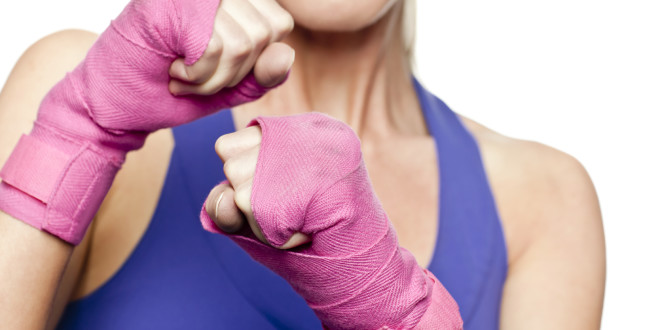by Michelle Sutton-Kerchner
We cannot eliminate cancer yet, but we can reduce our risk. Here are breast cancer protective factors to include in your healthy lifestyle …
Screenings
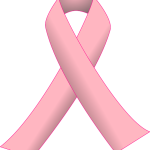 Follow recommended guidelines for screenings and breast self-exams. If you have any suspicious findings, this will assure your best chance for early detection and treatment. Self-exams should be done monthly. Frequency of screenings, specifically mammograms, is more subjective based on age and family history.
Follow recommended guidelines for screenings and breast self-exams. If you have any suspicious findings, this will assure your best chance for early detection and treatment. Self-exams should be done monthly. Frequency of screenings, specifically mammograms, is more subjective based on age and family history.
Previously, annual mammograms were recommended for women age 40 and older. However, there is some controversy over a mammogram’s risk of over-diagnosis, false-positives, and false-negatives while simultaneously exposing the patient to radiation. Here is the latest:
- Steadfast in its belief that mammograms reduce cancer deaths, the National Cancer Institute and the American College of Obstetricians and Gynecologists continue to recommend annual mammograms for women ages 40 to 74 years.
- Current guidelines from the U.S. Preventive Services Task Force only recommend mammograms every two years for women ages 50 to 74 years.
- Speak with your healthcare provider to determine a schedule appropriate for you based on your health history.
You also may wish to consider genetic testing. This can screen for a gene mutation, such as BRCA 1 or 2, the presence of which greatly increases your risk for breast or ovarian cancer. A strong family history of these cancers can genetically predispose you to this gene. Other factors can influence your risk of inherited cancer as well. Discuss your health history with your physician to determine if genetic screening is appropriate for you.
Protective Strategies
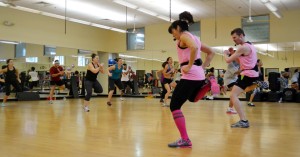 Exercise. Follow guidelines from the Centers for Disease Control and Prevention (CDC) of moderate exercise for 150 minutes weekly. According to the CDC, moderate exercise includes anything that raises your heart rate and causes you to break a sweat.
Exercise. Follow guidelines from the Centers for Disease Control and Prevention (CDC) of moderate exercise for 150 minutes weekly. According to the CDC, moderate exercise includes anything that raises your heart rate and causes you to break a sweat.
Maintain a healthy weight. Along with myriad other health issues, being overweight can increase risk of breast cancer. Daily exercise, combined with a nutritious diet, helps achieve and maintain a healthy weight. When planning that nutrient-packed diet, consider foods known to fight cancer.
Eat carotenoid-rich foods. The Mediterranean diet, which focuses on vegetables, fruit, and omega-rich fish, is associated with reduced risk of breast cancer. Specifically, foods packed with carotenoids, including orange-colored produce, tomatoes, spinach, kale, and salmon, may help decrease breast cancer risk by up to 50 percent. Aside from their protective qualities, these foods are excellent for increasing overall health and shedding unwanted pounds. Go green– and orange, and red, and pink!
Manage healthy sleep patterns. Sleep is not a luxury. Its restorative power helps everything from muscle repair to body-weight management. Quality, predictable sleep for about eight hours nightly can help reduce your chance of breast cancer. Research continues to find correlation between increased risk for breast cancer and sleep deprivation, night-shift work, and irregular sleep-wake cycles.
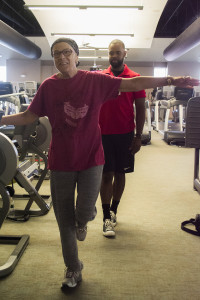
Member Spotlight: Alice Gordon
During Alice’s recovery from breast cancer, she felt lousy. She knew she needed to get moving. She also knew she still had limits. The Center’s Cancer Wellness Program tailored a fitness program to meet her post-rehabilitation needs.
“Through the Center’s Cancer Wellness Program, I learned what I could do and what I should avoid. It motivated me to get out, keep trying, and move more. I am making progress and doing better,” shares Alice.
Tim Marshall, Director of Research and Program Development at the Center, emphasizes the need for cancer patients to remain as active as possible during recovery. However, he acknowledges many cancer survivors will have unique needs based on the treatments received for their cancer. Tim encourages them to seek the expertise and guidance of rehabilitation and exercise professionals before participating in an exercise program.
The personal training team involved in the Cancer Wellness Program is highly specialized. Each trainer is required to undergo vigorous training, during which they learn about cancer, how it is treated, and the associated side-effects. From this, they gain knowledge about what should be considered within an exercise program. Tim assures, “The trainer emerges skilled at creating a supportive, comfortable environment appropriate for the participant.”
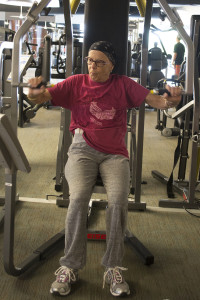
For members like Alice, it means modifications that allow her to exercise in a way that promotes safe, effective healing. Her fitness program was created to complement the rehabilitation she did prior to advancing to this stage. Alice’s trainer tweaks her program to meet her changing needs, which permits her to engage in a variety of exercises.
Alice summarizes her experience, “The Cancer Wellness Program is customized for me, a cancer patient continuously striving for better health.”
So Much Can Be Done
We must strive to live our healthiest. Exercise, proper nutrition, habits to nourish physical and emotional wellness– all these work in unison. Sometimes, best efforts may succumb to illness, including a cancer diagnosis. Strength of mind and body will be tested. Know you are never alone. According to the National Cancer Institute, there were approximately 232,670 new cases of breast cancer in women and 2,360 new cases in men in 2014.
The Center is available on your healthiest days and, especially, on those challenging ones. We are ready to help you take care of yourself, including best efforts to prevent and overcome cancer.
Sources
“A Free Way to Help Prevent Breast Cancer,” by Markham Heid at prevention.com.
“10 Strategies that Can Help You Prevent Breast Cancer,” by Linda B. White at everydayhealth.com.
Mayoclinic.org
 Fitness & Wellness News Your Source for Fitness News, Wellness News, Health News, and Nutrition News!
Fitness & Wellness News Your Source for Fitness News, Wellness News, Health News, and Nutrition News!
